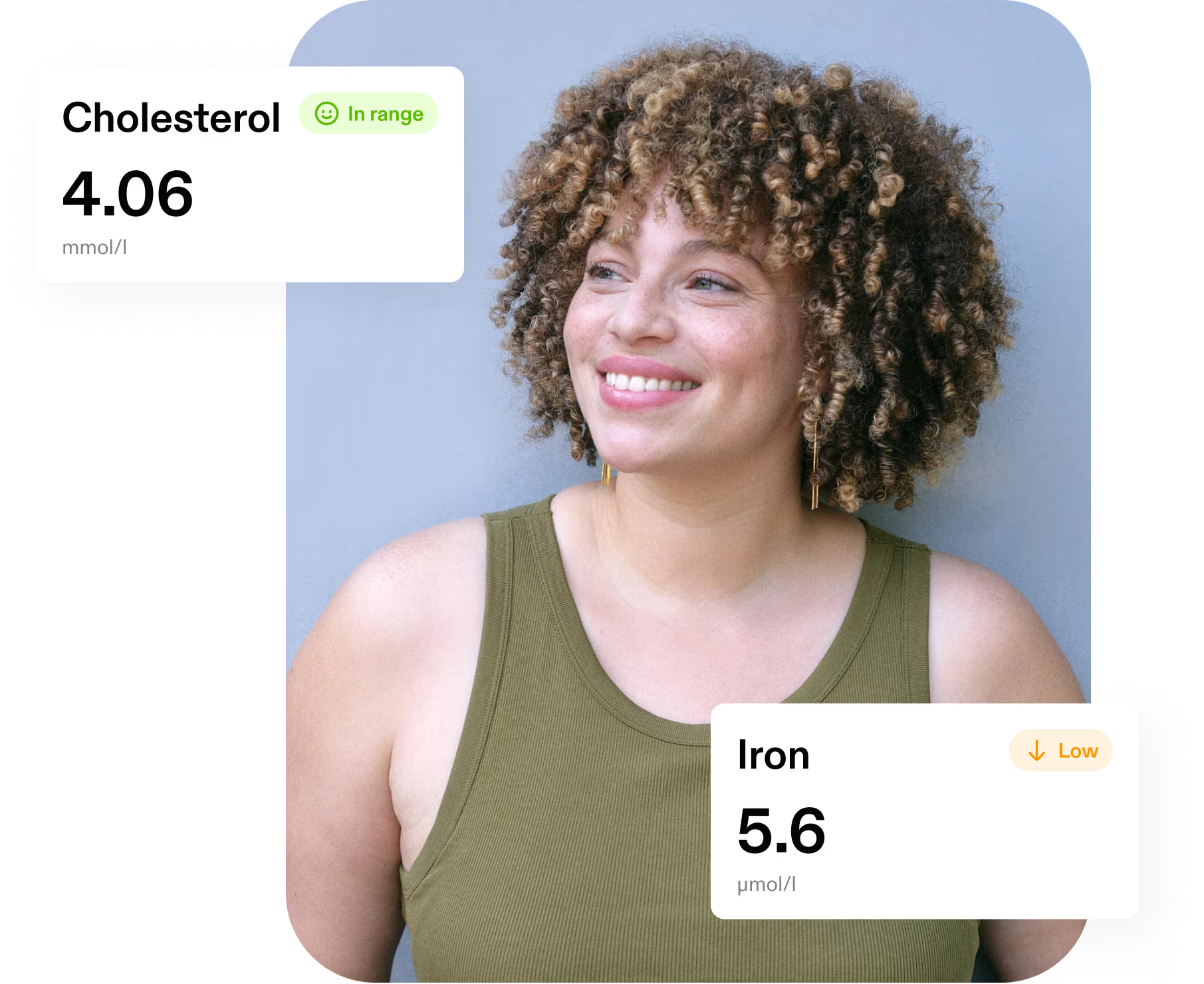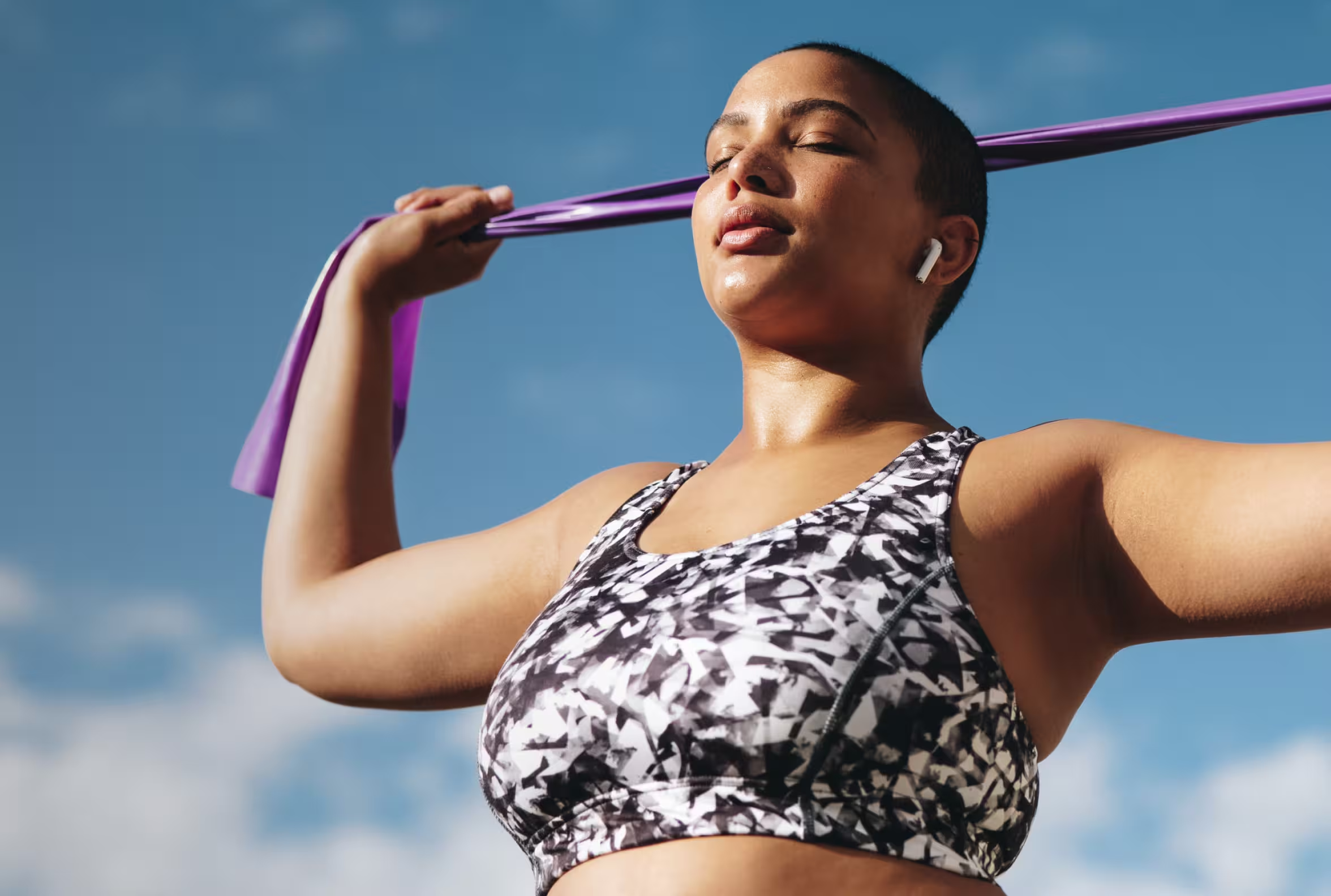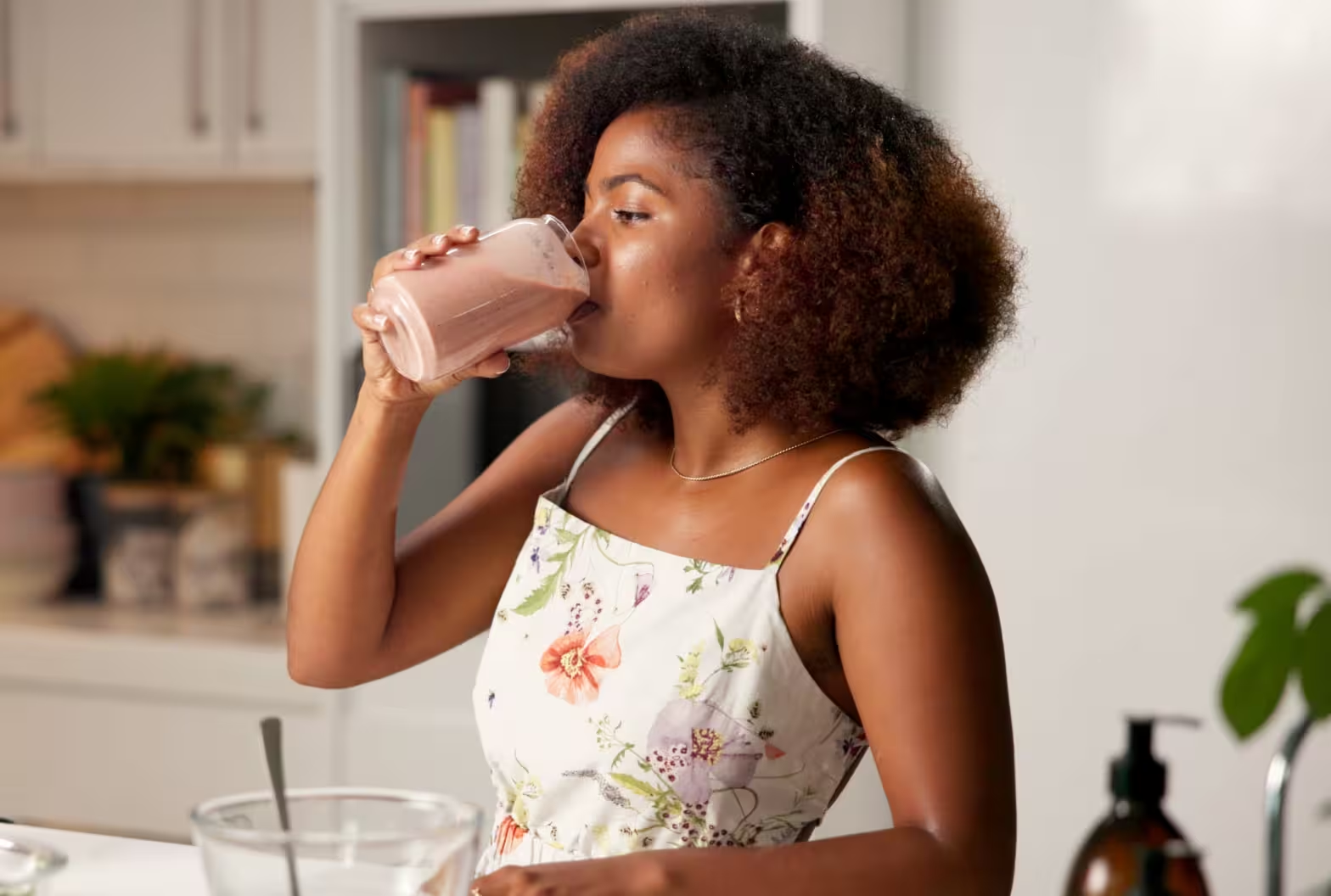Aktualisiert am
February 10, 2026
Eine Checkliste für deinen nächsten Bluttest
Die Vorbereitung auf eine Blutentnahme kann etwas stressig sein. Hier findest du Tipps, die Ihnen helfen, sich zu entspannen und den Vorgang reibungslos zu gestalten.

Dein Blut enthält eine Fülle von Informationen darüber, was in deinem Körper vor sich geht. Aus diesem Grund empfehlen wir, regelmäßige Tests durchzuführen, um dein Gesundheitszustand zu überprüfen. Wenn also eine Blutabnahme ansteht, solltest du einige Dinge beachten, um genaue Ergebnisse zu erzielen und den Vorgang so reibungslos wie möglich zu gestalten. In diesem Artikel geben wir dir einige Tipps, wie du dich auf eine einfache Blutentnahme vorbereiten kannst, um einen reibungslosen Ablauf zu unterstützen und was danach zu tun ist.
Wann und warum sollte man für eine Blutentnahme fasten?
Um sich auf eine Blutuntersuchung vorzubereiten, musst du häufig bis zu 12 Stunden fasten, bevor du zur Untersuchung gehst. Wenn du bestimmte Lebensmittel isst und trinkst, werden diese während des Verdauungsprozesses in deinem Blutkreislauf aufgenommen und können die Testergebnisse verändern. Aber nicht bei jeder Blutentnahme muss gefastet werden. Ihr Arzt oder die App wird dich vor deinem Termin darüber informieren, ob und wie lange du dich enthalten sollten.
Das Fasten ist besonders wichtig vor einem Glukosetest, bei dem die Zuckermenge (Glukose) im Blut gemessen wird. Wenn du vor diesem Test isst, steigt dein Blutzuckerspiegel normalerweise an und verändert die Ergebnisse. Andere Blutuntersuchungen, die Fasten erfordern, umfassen:
- Leber-Panel
- Lipidpanel zum Testen des Cholesterinspiegels
- Grundlegendes Stoffwechselpanel
.avif)
Tipps zur Vorbereitung auf eine Blutabnahme
Eine Blutabnahme ist keine große Sache, kann aber trotzdem stressig sein. Wenn Du nervös bist, hilft es zu wissen, dass der Vorgang schnell und unkompliziert ist – er dauert nur wenige Minuten. Damit bei Deiner Blutentnahme alles reibungslos abläuft, kannst Du im Vorfeld ein paar Dinge beachten.
Faste 12 Stunden lang, wenn dies von deinem Arzt empfohlen wird
Bei einigen Bluttests (wie dem Aware Health Check) ist es notwendig, 12 Stunden vorher zu fasten, um genaue Ergebnisse zu erhalten. Das bedeutet: nichts essen oder trinken – außer Wasser. Nach der Blutabnahme kannst Du direkt wieder essen. Falls Du aus Versehen vorher etwas gegessen hast, sag dem/der Phlebotomistin Bescheid. In manchen Fällen wird der Test dann verschoben.
Trink genug Wasser
Gerade am Tag der Blutentnahme ist es wichtig, gut hydriert zu sein. Viel Wasser hilft dabei, Deine Venen besser sichtbar zu machen und die Blutabnahme einfacher und schneller zu gestalten.
Verzichte auf intensives Training
Leichte Bewegung ist okay, aber anstrengendes Training solltest Du vor der Blutabnahme vermeiden. Es kann bestimmte Werte wie CRP, Kreatinkinase, Cholesterin oder Leberenzyme beeinflussen. Damit die Ergebnisse möglichst genau sind, sollte Dein Körper zur Blutabnahme ausgeruht sein.
Vermeide Alkohol vor dem Test
Am besten verzichtest Du bis zu 24 Stunden vor der Blutentnahme auf Alkohol. Wie bei intensivem Sport kann auch Alkohol bestimmte Blutwerte wie Glukose oder Triglyzeride verändern und so das Ergebnis verfälschen.
Nahrungsergänzungsmittel pausieren
Nahrungsergänzungsmittel gelangen in Deinen Blutkreislauf und können das Ergebnis beeinflussen – je nach Präparat über Stunden oder sogar Tage. Wenn Du frühzeitig von der Blutabnahme weißt, setz die Einnahme am besten vorher aus. Als Faustregel gilt: mindestens 24 Stunden vorher pausieren. Biotinpräparate solltest Du drei bis sieben Tage vor dem Test absetzen.
Medikamente? Arzt fragen!
Wenn Du regelmäßig Medikamente einnimmst, klär vorab mit Deinem Arzt, ob Du sie wie gewohnt nehmen sollst. Manche Medikamente (z. B. gegen Schilddrüsenprobleme oder Diabetes) können die Blutwerte beeinflussen.
Lass die Blutabnahme morgens machen
Wenn Du fasten musst, ist ein morgendlicher Termin am angenehmsten – Du kannst einfach über Nacht fasten und direkt nach dem Test frühstücken. Manche Tests brauchen jedoch eine bestimmte Tageszeit. Im Zweifel: frag Deinen Arzt.
Was ist während der Blutentnahme zu tun
Wenn Du nervös bist oder Angst hast, sprich es offen an. Die Person, die Dir Blut abnimmt, kann Dir den Ablauf erklären und Dich beruhigen. Hier ein paar zusätzliche Tipps:
- Stell Fragen: Wenn es Deine erste Blutabnahme ist oder Du Dich unwohl fühlst, frag nach. Informationen helfen, Ängste zu reduzieren.
- Schlag eine Stelle vor: Wenn Du weißt, welche Vene bei Dir gut funktioniert, sag Bescheid – das hilft besonders, wenn es schwierig ist, eine passende Vene zu finden.
- Schau weg und atme ruhig: Das kann helfen, die Nerven zu beruhigen. Oft ist es vorbei, bevor Du es überhaupt merkst.
- Höre Musik: Höre dir dein Lieblingslied auf deinem Handy an, um dich abzulenken. Forscher der Stanford University haben gesagt, dass „Musikhören in der Lage zu sein scheint, die Gehirnfunktion in gleichem Maße zu verändern wie Medikamente“.
- Warm halten: Niedrige Temperaturen lassen deine Venen schrumpfen, was es für den Phlebotomisten schwieriger macht. Also bleib warm.
Was tun nach der Blutabnahme
Nach der Blutentnahme kannst Du entspannt nach Hause gehen und auf Deine Ergebnisse warten. Falls Dir etwas schwindelig ist – kein Grund zur Sorge, Du hast wahrscheinlich gerade gefastet. Eine gute Mahlzeit, etwas Ruhe und viel Wasser helfen schnell.
- Iss etwas & trink Wasser: Gerade nach dem Fasten hilft ein schneller Snack, um Energie und Flüssigkeit aufzufüllen.
- Nährstoffreiche Ernährung: In den Tagen nach dem Test tut es gut, eisen- und vitaminreiche Lebensmittel zu essen – besonders, wenn Dir häufiger Blut abgenommen wird. Spinat, Leber, rotes Fleisch, Bohnen (Eisen) und Zitrusfrüchte, Erdbeeren oder Brokkoli (Vitamin C zur besseren Eisenaufnahme) sind super.
- Vermeide anstrengenden Sport: Wenn die Einstichstelle noch blutet, gönn Dir lieber eine Pause.
- Kalte Kompresse: Falls Du Schmerzen an der Einstichstelle hast.
- Warmes Tuch: Bei Blutergüssen – ab dem zweiten Tag nach der Abnahme. Das fördert die Durchblutung und hilft bei der Heilung.
Wenn die Blutentnahme wie geplant verlaufen ist, sollte es dir vollkommen gut gehen und du solltest keine Nebenwirkungen verspüren. Wenn du jedoch nach einer Blutentnahme eines der folgenden Symptome hast, wenden dich an deine Arzt:
- Steifheit im Arm, aus dem das Blut entnommen wurde
- Intensive Schmerzen in deinem Arm
- Kribbeln in deinem Arm
- Rötung oder Entzündung im Bereich, in dem das Blut entnommen wurde
- Starke Schwellung des Arms

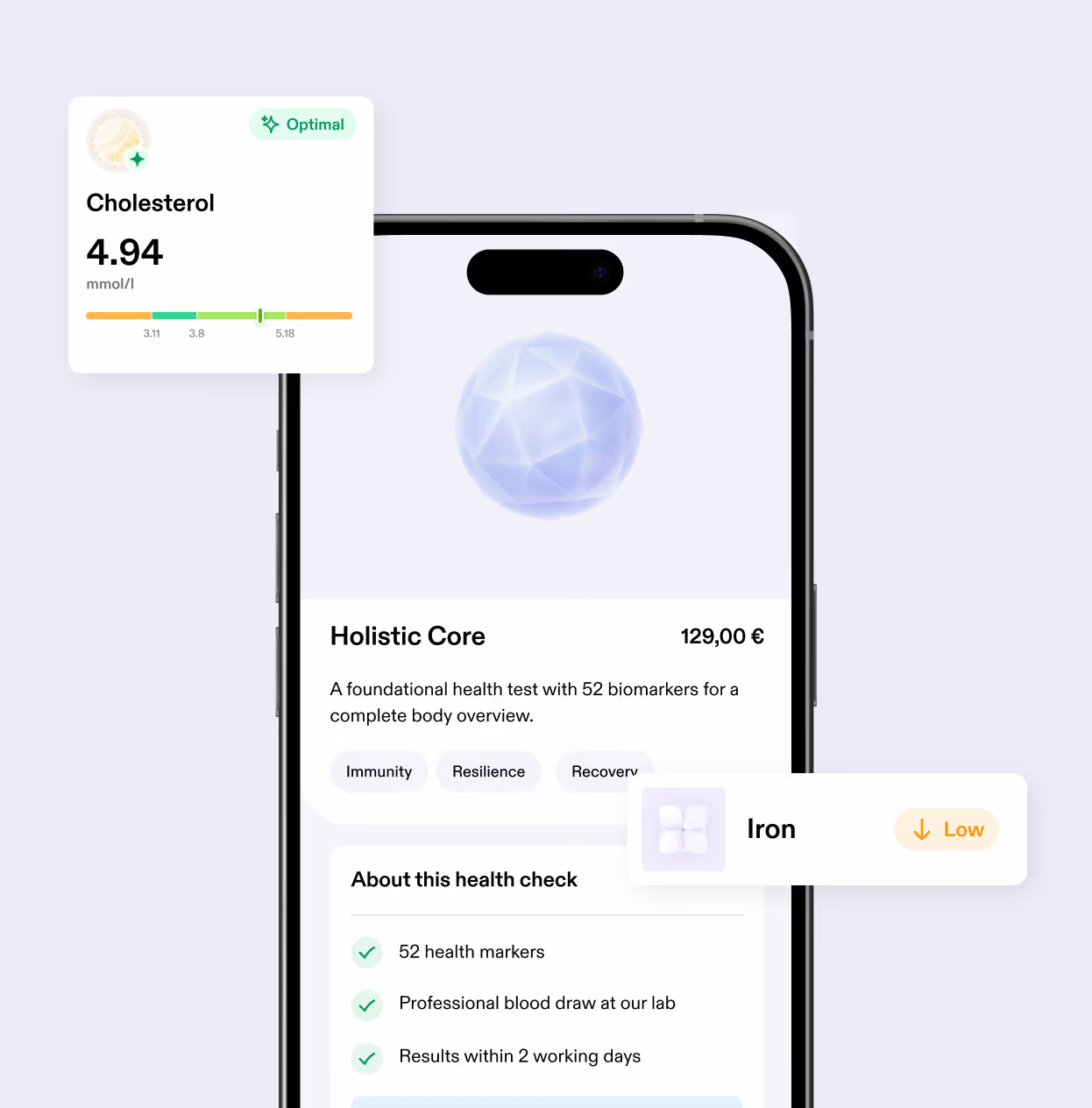
Holistic Core Paket
Ein umfassender Basis-Test zur Beurteilung von Herzgesundheit, Stoffwechsel, Organfunktion, Immunsystem und Entzündung für einen ganzheitlichen Gesundheitsüberblick.
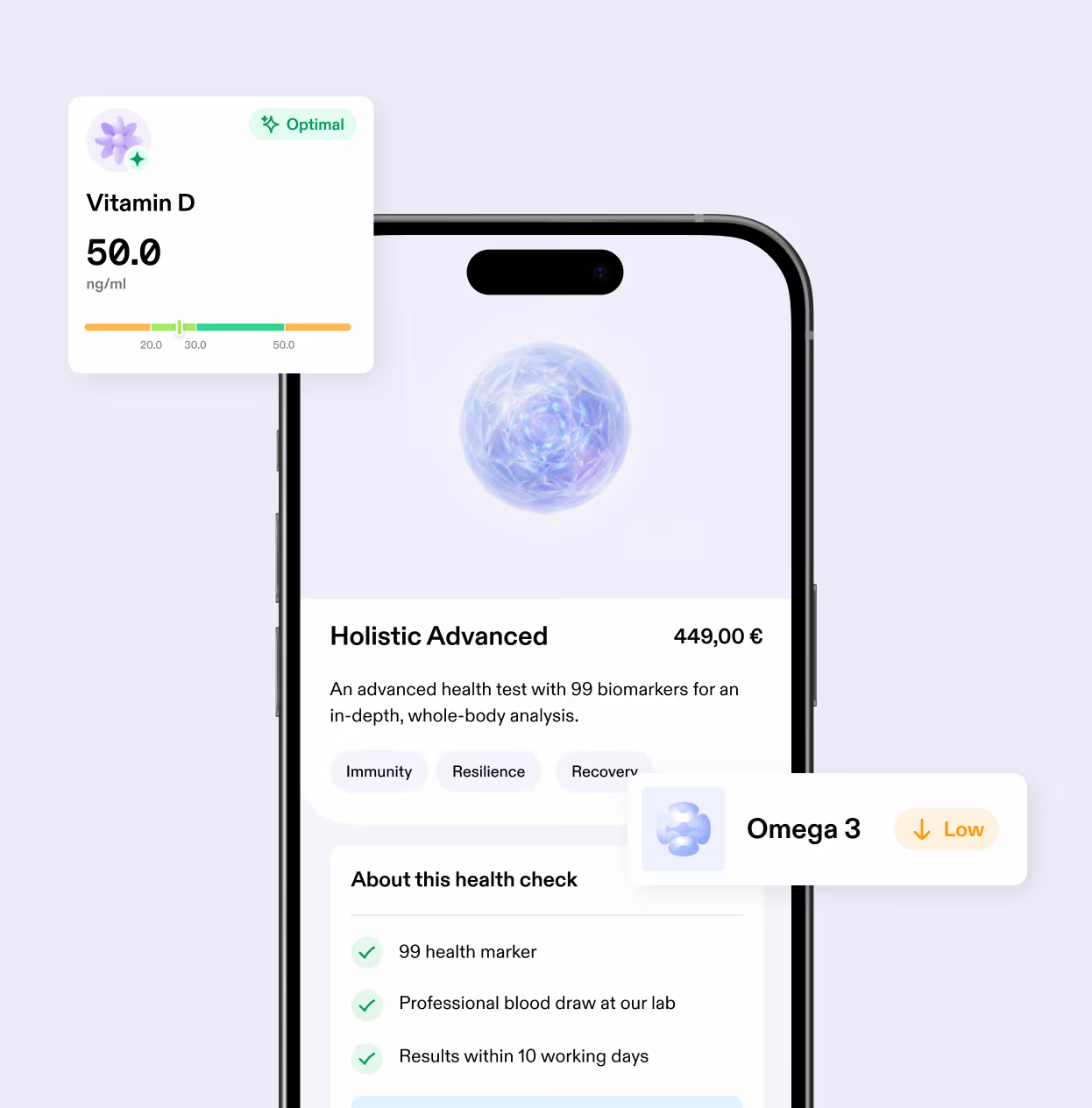
Holistic Advanced Package
Holistic Advanced misst 99 Biomarker für Herz, Stoffwechsel, Organe & Immunität.
Die Quintessenz
Eine Blutabnahme kann ein Kinderspiel sein, wenn du weißt, was dich erwartet und wie du dich vorbereiten musst. Lade unsere Liste herunter, um sie für deinen nächsten Termin griffbereit zu haben.
Für genaue Ergebnisse ist es unerlässlich, hydratisiert zu bleiben, für bestimmte Tests zu fasten und Alkohol, Nahrungsergänzungsmittel und intensives Training vor dem Unentschieden zu vermeiden. Wenn du irgendwelche Sorgen oder Befürchtungen bezüglich des Prozesses hast, sprich mit der Krankenschwester oder dem Phlebotomisten, bevor sie mit der Abnahme beginnen. Versuche, während des gesamten Vorgangs ruhig und entspannt zu bleiben.

Hinweis: Die Produkte und Dienstleistungen von Aware sollen einen gesunden Lebensstil unterstützen, ersetzen jedoch keine professionelle medizinische Beratung. Unsere Inhalte und Medien sind nicht dazu gedacht, Krankheiten zu diagnostizieren, zu heilen oder zu behandeln.
Subscribe to our newsletter!
Articles, tips, and offers. Straight to your inbox.




